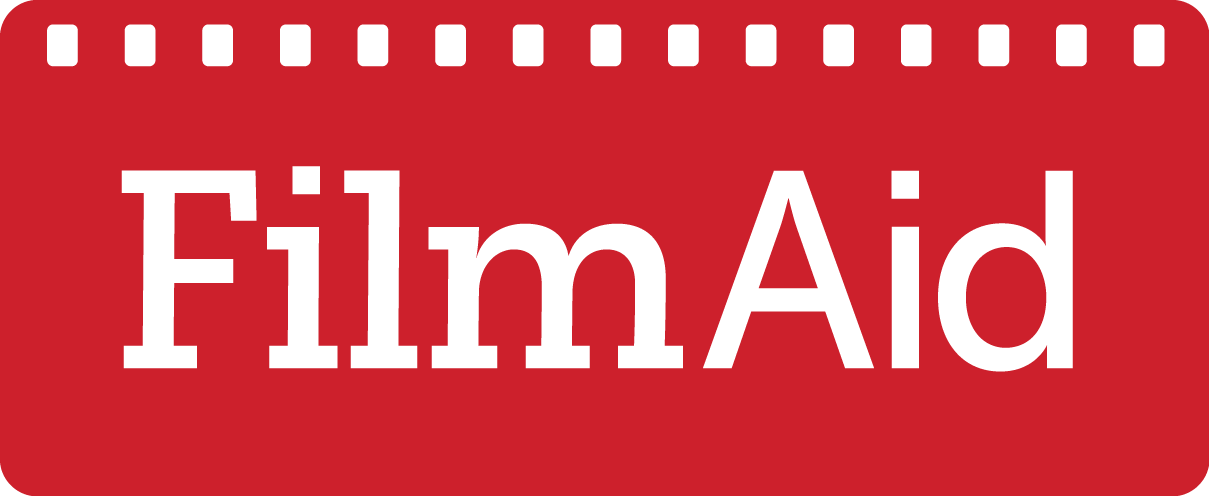This February, Michael Sackler-Berner together with his wife Ilana (see her post here) spent one week in Kakuma with FilmAid staff. Michael brought state-of-the-art sound equipment and conducted workshops with FilmAid staff and students. Here is his account of the week!
Flying to Kakuma can be misleading. Though the plane I took was chartered and run by the World Food Programme and headed to a massive refugee camp hours from any city, it felt much like a standard commuter plane, complete with drink cart and flight attendants. It took only a few minutes upon arrival to realize it was no usual puddle jumper.
Kakuma is in the desert and the only real road signs I noticed as we approached the camp were those pointing to NGO compounds. The armed, gated compounds are tucked inside a surprisingly large city of small, dusty homes. Some homes are mud brick with metal roofs, others are tarp relief tents, and none have flooring or plumbing.
The tremendously bumpy roads and paths the NGO land cruisers use to get around led us right to FilmAid’s offices. I clutched my guitar and bag hoping the recording gear inside wouldn't be damaged in this last leg of my two-day journey from Brooklyn to Kenya.
After a warm welcome from FilmAid’s field staff, I found myself in a small community building just past the new arrivals check-in point, with a generator pumping outside. Within a few hours, microphones were set up, software installed, and monitors blasting. I would spend the next four days in this building with refugee and host community musicians, FilmAid audio staff, and countless refugees who would hear music and wander through to see what was going on. Outside the studio window was a latrine and a road where goats would occasionally wander by, munching on garbage that lines the paths.
Time, which has a way of moving at light speed in New York, moves mighty slowly in a refugee camp. Refugees from every corner of the region live in Kakuma, from years to decades, with no ability to work and nowhere to go. It is not unusual to see someone spend a whole day under a tree, resting, with nothing to do. So anything to do, particularly something creative that results in a final product, is much needed psychological relief. It is met with open arms, excitement and preparation.
Every morning, I worked with 4 or 5 artists, rappers, and singers to write a song. Every afternoon, we tracked the tune. When I work in professional co-writing sessions in New York or Nashville, it often takes hours before the writers find a new way of saying something meaningful enough to consider the words "lyric." Not in Kakuma. The artists have a lot to say and it is right on the surface.
The opportunity to be heard is a rare treat for these artists. They live difficult lives in arguably some of the toughest of conditions. No time I spent with them was ever wasted or taken for granted. Questions, ideas, titles, melodies, beats, and lyric were constantly flowing from the 8:30am car ride to the studio, until the generator ran out of gas after our final playback around 6:00pm.
I never could've anticipated the wealth of talent FilmAid’s outreach staff was able to find. Everything I’d heard about African rhythm was true and there seemed to be a gold mine of incredible singers and rappers with something important to say. They also have fantastic stage names – Smart, Diddy Stone, Afisa, King Moses, Fire Man, etc. FilmAid’s staff audio producers, Victor K. and Abdul, have the skills and gear to make fantastic and meaningful records for years to come. Their passion for making records was deeply refreshing.
I could go on for days about the artist’s individual talents, heartbreaking stories, hopeful dreams, and plentiful skills, but I will let their music do the talking. With the help of FilmAid, they have a microphone that has the potential to not just bring them moments of joy when it is needed, but with any luck, and a touch of musical magic, bring their stories to the world.

